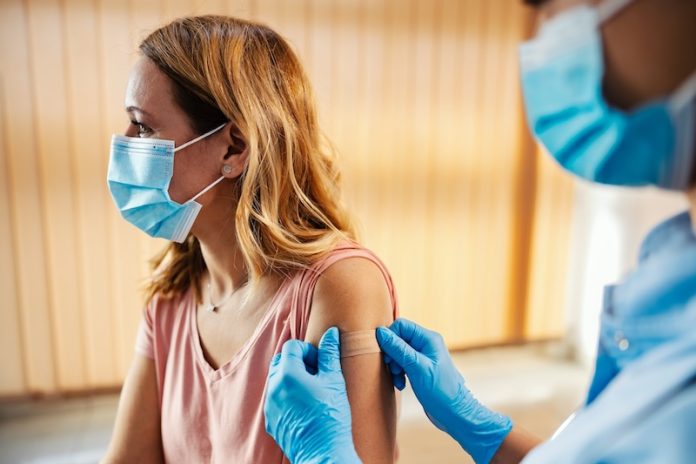
The pandemic may have subsided, but the coronavirus, especially its highly contagious omicron variants, remains a concern in Germany.
In response, new booster vaccines from BioNTech and Moderna have been developed, specifically targeting the omicron subline XBB.1.5.
Although the effectiveness of these boosters was initially unclear, a recent study by the Department of Rheumatology and Immunology at Hannover Medical School (MHH) has provided promising results.
This groundbreaking research, conducted in collaboration with the MHH Institute of Immunology and the German Primate Center Göttingen, marks the first published paper on the new XBB.1.5-based vaccine from BioNTech.
The study, part of the “COVID-19 Contact (CoCo)” project at MHH, involved 53 MHH employees who received the vaccine.
Their immune response post-vaccination was measured, revealing a significant increase in antibodies against various omicron variants. This finding has been published in The Lancet Infectious Diseases.
Senior physician Professor Dr. Alexandra Dopfer-Jablonka and her colleague Professor Dr. Georg Behrens, who led the immune study, observed a robust immune response.
Not only were there a high number of neutralizing antibodies against omicron XBB.1.5, but also against other sub-variants such as “Pirola” (BA2.86) and “Eris” (EG1.5).
This suggests the vaccine effectively activates the body’s defense against the dominant and currently spreading coronavirus variants.
The study highlights that both B cells (producing antibodies against omicron) and T cells were significantly strengthened by the vaccination.
This indicates that the new booster not only meets its intended goal but also induces antibodies against new SARS-CoV-2 variants.
Like the initial coronavirus vaccines from BioNTech and Moderna, this new booster is an mRNA vaccine, which works by providing the genetic blueprint for the spike protein found on the coronavirus surface.
This triggers the immune system to recognize the protein as foreign and develop immune protection. Unlike last season’s bivalent vaccines, the new boosters contain mRNA solely of the omicron variant, yet they activate both a backward and forward defense mechanism.
While the study focused on the BioNTech vaccine, similar effectiveness is expected from Moderna’s and Novavax’s vaccines, both adapted to XBB.1.5.
The research, based on the MHH CoCo study that started in March 2020, reflects a significant team effort.
This ongoing study investigates immune reactions against SARS-CoV-2 in MHH employees and affiliated institutions, contributing to a better understanding of long-term immune responses and vaccine success.
In light of these findings, the Standing Committee on Vaccination (Stiko) recommends booster vaccinations with the new, adapted vaccine for people aged 60 and over, those at high risk of severe disease, residents of care homes, and employees in the care and healthcare sectors.
The booster is advised to be taken annually, preferably in autumn. This study thus offers a ray of hope in the ongoing battle against COVID-19, showcasing the potential of targeted vaccines in combating evolving virus strains.
If you care about weight, please read studies about diet that can treat fatty liver disease, obesity, and hop extract could reduce belly fat in overweight people.
For more information about weight, please see recent studies about how to curb your cravings for ready-to-eat foods, and results showing what you can eat to speed your metabolism up.
The research findings can be found in The Lancet Infectious Diseases.
Copyright © 2023 Knowridge Science Report. All rights reserved.



